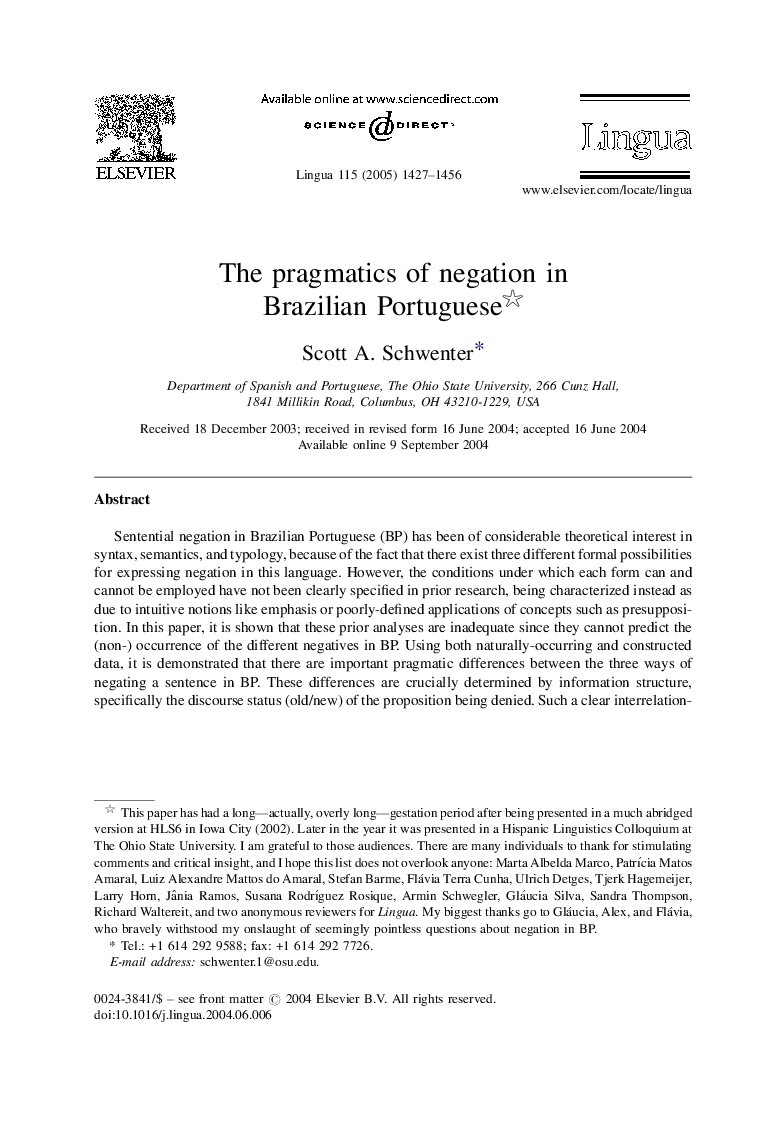| Article ID | Journal | Published Year | Pages | File Type |
|---|---|---|---|---|
| 10461157 | Lingua | 2005 | 30 Pages |
Abstract
Sentential negation in Brazilian Portuguese (BP) has been of considerable theoretical interest in syntax, semantics, and typology, because of the fact that there exist three different formal possibilities for expressing negation in this language. However, the conditions under which each form can and cannot be employed have not been clearly specified in prior research, being characterized instead as due to intuitive notions like emphasis or poorly-defined applications of concepts such as presupposition. In this paper, it is shown that these prior analyses are inadequate since they cannot predict the (non-) occurrence of the different negatives in BP. Using both naturally-occurring and constructed data, it is demonstrated that there are important pragmatic differences between the three ways of negating a sentence in BP. These differences are crucially determined by information structure, specifically the discourse status (old/new) of the proposition being denied. Such a clear interrelationship between choice of negative form and information structure represents an important contribution to the study of negation as well as to the field of pragmatics.
Related Topics
Social Sciences and Humanities
Arts and Humanities
Language and Linguistics
Authors
Scott A. Schwenter,
